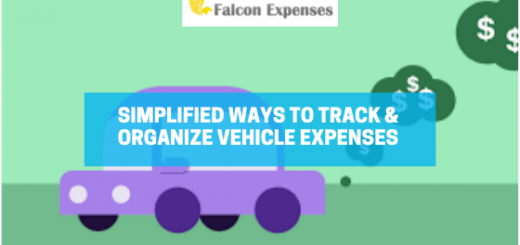Self Employment Tax Write Offs: The Complete List
Table of Contents
Read this article for a complete list self employment tax write offs. Some self employment tax deductions you might be missing out on.

Read on to learn.
Are you self-employed and wondering how to maximize your take-home income?
Did you know that there are many self-employment tax write-offs and self-employment tax deductions, which when used properly increase your take-home income?
Continue reading and we will share with you ALL of the self-employment tax write-offs available to you, some you might not have even heard of before. This post also contains links to various resources on many of the items, in addition to resources directly from the IRS. Therefore, feel free to scroll down directly to the section that interests you.
What is a self employment tax write off?
A self-employment tax write-off is also known as a self-employment tax deduction or just tax deduction. Self-employment tax deductions are dollar amounts you deduct from your gross income on your individual tax return or a business tax return. In this article, our focus is on the tax write-offs for self-employed individuals.
An example of an individual tax write-off is when an individual spends money on a business expense. After, they then deduct that amount from their gross taxable income. This reduces the total dollar amount of income the individual pays taxes on. Therefore, reducing their total taxable income. Thus, potentially increasing the amount of their income tax return.
For example, let’s say an individual’s self-employed gross taxable income is $10,000 USD. And they spent a total of $4000 USD on self-employed tax-deductible expenses. After taking into account the $4000 in self-employed tax-deductible business expenses the total remaining self-employed taxable income for this individual is $6000. This means the self-employed individual pays tax on $6000 of net income, instead of their $10,000 gross income.
Now you’re probably wondering what are the different tax deductions that you can take as a self-employed individual? Continue reading this article are we will show you.
Home Office Expenses
As a self-employed individual, you can write off from your gross taxable self-employment income the percentage of your rent or mortgage for that part of your home, or apartment that is dedicated to your home office. For example, if your home office occupies 10% of your home, you can deduct 10% of your rent or mortgage from your self-employment taxable income.
In addition, (for homeowners) you can deduct mortgage interest, property taxes, home depreciation, homeowners insurance, utilities, and maintenance. The same logic for the percentage calculations to determine the tax write-offs for self-employed amounts applies as given in the example in the paragraph above.
Check out this article about how to work from home better, 7 Work from Home Tips, the Results Save You Money.
Check out this article to learn how to calculate your home office tax deduction (IRS resources links included), Home Office Tax Deduction for Self Employed. This article goes over how to deduct the actual expense of using part of your home for work. How cool would it be to deduct part of your rent or mortgage from your taxes? It’s not just cool, it’s possible you can do this. Click the link above to learn how.
Rent
For the self-employed, there are those that work from home and those that rent office space. As we mentioned in the Home Office Expenses section, if you’re self-employed and you work from home then you can deduct the percentage of your home that you use for your office from your taxable income. On the other hand, the rent expense of an office space you rent that is not a part of your home is a self-employment tax deduction. The amount of your office rent is tax-deductible from your taxable income.
Health Insurance Premiums
Health insurance premiums are tax-deductible for self-employed individuals. This self-employment tax deduction is a must, especially with the increase in healthcare costs and the coronavirus pandemic.
Car Use for Business Purposes
Qualified business use of your car is tax-deductible. What qualifies as business use of your car? Business mileage that is tax-deductible falls into various different categories such as,
- travel to different offices
- drives to meet clients
- drivers to the airport or train station
- errands (i.e. bank, office supplies)
- temporary work locations
- odd jobs
For a complete detailed overview of qualified tax-deductible mileage check out the following article, What Business Mileage is Tax Deductible.
If you qualify for business use car tax deductions, the next step is to choose your method of tax deduction. For business-use car tax deductions, there are two methods to choose from:
- Actual Car Expense Method
This is an itemized method of itemized each individual car expense that you incur throughout the year. - Standard Mileage Rate
The per mile rate is a rat set annually by the IRS. For this years rates check out this post, IRS Standard Mileage Rates.
Falcon Expenses offers various mileage expense tracking software solutions. Check out this post for details about how to keep an IRS-compliant odometer log, How to Keep an Odometer Log.
Self Employment Tax
Self-employment tax includes the employer portion of Medicare and Social Security taxes. The IRS treats the ’employer’ portion of your self-employment tax as a business tax. If you’re self-employed you’re paying this portion of the tax yourself and it’s thus a self-employment tax deduction. For better understanding, you also need to know about tax planning and preparation tips.
Check out the following article for a full overview about self-employment tax, What is Self Employment Tax?
Meals Self Employment Tax Write Offs
Meals when you’re traveling or entertaining clients are tax-deductible. In addition, you can only deduct 50% of the total meal expenses from your self-employed taxable income. This is a self-employment tax deduction to track. It is often challenging to diligently track tax-deductible meal expenses for the self-employed. Therefore, we recommend using a convenient expense tracking app such as Falcon Expenses. Falcon Expenses automates the process of keeping track of expenses. For example, integrate your debit and credit card charges into Falcon Expenses. Then quickly categorize self-employed tax write-offs such as meal expenses with a few taps of your finger.
Travel
Travel expenses include expenses you incur while traveling for business purposes. Therefore, business travel must have a purpose that is related to your business activity and planned before. For example, meetings with clients, business development, For example, lodging, meals, entertainment, etc.
Business travel expenses are a tax write-off if the business travel was longer than an ordinary day’s work. Read the following article for a detailed IRS definition of business travel, What is the Definition of Business Travel?
Business travel expenses include travel, lodging, meals, entertainment, etc. In this article, we have described most of these self-employed tax write offs for business travel aside from lodging and travel. For lodging and travel, you can deduct the full amount of the expense. Travel includes travel made by train, plane, bus or car. For travel by personal car, you deduct a certain amount per mile, or you use an itemized expense deduction method. Review the following article for more information on self-employed tax deductions for business travel with use your personal car, How to Maximize Business Use Car Tax Deductions.
Please review the following article for a detailed overview of business travel expense deductions for self-employed, IRS Rules for Recording Business Expenses for Travel, Transportation, Meals and Entertainment.
Entertainment
Entertainment expenses are expenses associated with the entertainment of clients, vendors, partners, etc. For example, taking a client out to dinner or to a show. Other expenses such as cars, meals, etc, that are associated with the entertainment activity are part of the entertainment expense. Keep adequate records of tax-deductible expenses. Check out this article for adequate record keeping of self-employment deductible entertainment expenses, Adequate Record Keeping for Tax Deductible Entertainment Expenses.
Education
The costs for courses, classes, seminars, or any other form of education used to maintain or expand your skills to do your work are tax-deductible. However, costs for learning new skills, not in your current field of work are not tax-deductible.
Business Insurance
The amount you spend on business insurance is a self-employment tax deduction.
Advertising
Do you pay for ads to attract customers?
The money you spend on advertisements is a self-employment tax write off. Further, the money you spend on advertisements to raise money for charity using your self-employment brand is also tax-deductible.
Retirement Plan Contributions
Contributions you make to your retirement plan are self-employment tax deductions. For example, 401(k) and IRA contributions.
Interest Self Employment Tax Write Offs
Interest on bank business loans is a self-employment tax deduction. In addition, the interest incurred on credit cards for business purchases is also a self-employment tax deduction.
About Falcon Expenses
Falcon Expenses is a top-rated expense and mileage tracker app for self-employed and small businesses to track expenses and tax deductions. Falcon customers record $6,600, on average, in annual tax deductions. Get started today. The longer you wait, the more tax deductions you miss.
Automatically track mileage expenses and expenses, keep an odometer log, receipt vault and log billable hours. Quickly organize expenses by time period, project, or client. Easily create expense reports and mileage logs with your expense data to email to anyone in PDF or spreadsheet formats, all from your phone. Falcon’s expense report template is IRS compliant. Use for keeping track of tax deductions, reimbursements, taxes, record keeping, and more. Falcon Expenses is great for self-employed, freelancers, realtors, delivery drivers, couriers, business travelers, truckers, and more.
Was this article helpful?

I used to travel a lot for work. Doing my expenses frustrated me. I would delay submitting them and when I did, I would spend hours taping receipts to paper to scan for my boss. I knew there was a better solution, and I had a background in productivity software, so I created Falcon Expenses. I enjoy creating software that makes people’s lives easier.
In addition, I’m an avid skier and I enjoy hiking, sailing, and cooking.





